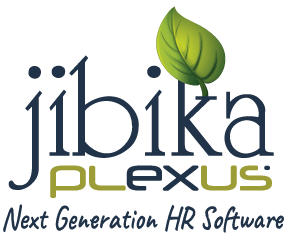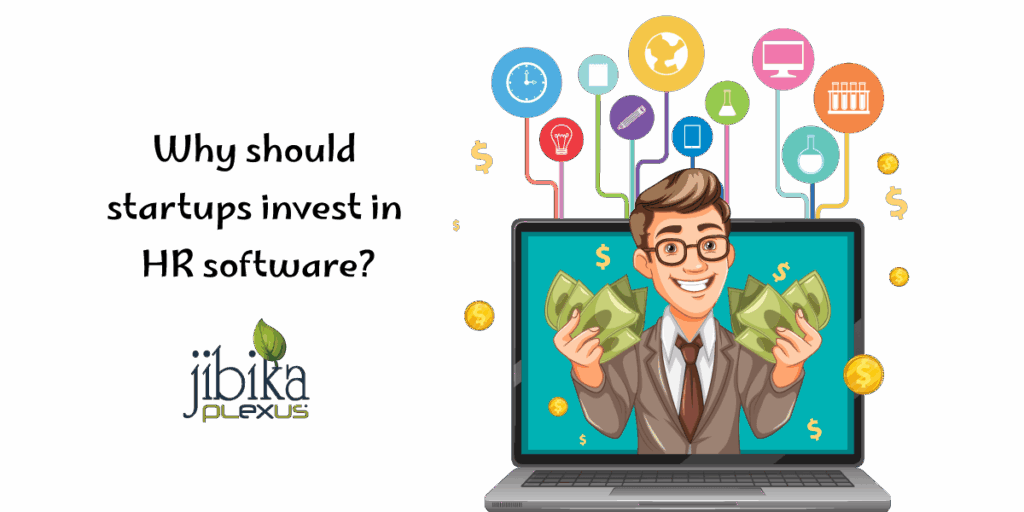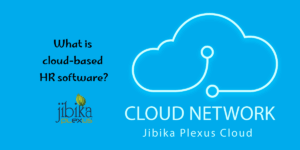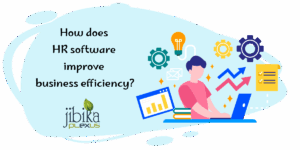Naturally, startups must be fast, innovative, and growth-oriented. Most of their focus is on product development, customer acquisition, and scaling operations, but one area that may take a backseat is human resources (HR).
Effective employee management forms the core of every successful organization, and startups are no different. However, startups with fewer resources and time usually find it hard to manage their HR functions seamlessly.
Enter HR software to the rescue. HR software helps startups manage their workforce more efficiently by automating HR tasks, centralizing data, and streamlining processes, allowing them to focus more on their core business goals.
There are many reasons that HR software is essential for your startup, which we will discuss in this article, including how it can help drive productivity, efficiency, and growth.
What Is HR Software?
HR software is an electronic tool for managing and streamlining HR processes such as recruitment, payroll, employee performance, benefits administration, and compliance tracking.
This helps startups manage HR processes efficiently and effectively, ensuring compliance with local laws and regulations while minimizing costs.
HR tools are a lifesaver for startups. They free them from repetitive processes while centralizing employee-related data. This approach saves time and guarantees accuracy and uniformity in human resource operations.
Why Should Startups Invest in HR Software?
For cash-strapped startups, investing in HR software appears to be a heavy expense. But the benefits significantly outweigh the costs, so it’s a wise investment. So, here are the main reasons why startups must focus on HR software:
1. Optimizing Recruitment and Onboarding
The success of a startup depends on hiring the right people. But doing everything by hand can take a long time and make mistakes. The HR software provides a solution that makes their recruitment process easy by helping to automate several such tasks, including job posting, resume screening, interview scheduling, etc.
Most HR platforms come with an Applicant Tracking System (ATS), which allows startups to follow candidates during the hiring workflow. 1) Once a candidate is hired, the software makes onboarding easy by automating document collection, assigning training, and creating profiles.
An efficient recruitment and onboarding process saves time and creates a positive first impression for new hires, increasing their engagement.
2. Saving Time with Automation
Startups generally operate with small teams, meaning employees juggle multiple roles to ensure work gets done. HR software reduces this administrative burden by automating repeated tasks such as payroll processing, benefits enrollment, and leave management.
This could mean anything from keeping track of taxes and benefits to obeying the rules and regulations of your local state/region; this relationship with payroll is that the software can do the heavy lifting for you. This gives HR teams and managers more time to focus on strategic initiatives that support business growth.
3. Centralized Employee Data Management
When a startup grows, managing employee information becomes increasingly challenging. HR software helps centralize all employee data, such as personal details, performance data, and compliance documents.
No more scattered sheets will be on your desk or in your drive. It also improves team collaboration because information can be shared securely and updated instantly.
4. Ensuring Compliance with Labor Laws
This does not apply to startups that comply with labor laws and regulations. However, failing to comply with tax laws, employee benefits requirements, workplace safety standards, and other laws and regulations can result in significant fines and legal trouble.
HR software helps make compliance easier by automating tax filings, benefits reporting, and document tracking. Most platforms have built-in tools that help with compliance and keep the startups updated with changing regulatory requirements.
This minimizes crises due to penalties and helps startups, who can focus on scaling the business without any worries.
5. Enhancing Employee Engagement and Satisfaction
Employee engagement is one of the factors that determine a startup’s success. HR software optimizes employee experience with self-service portals that allow employees to view their pay stubs, request leave, update personal information, and enroll in benefits.
Moreover, the software helps startups perform periodic performance appraisals, gather feedback, and appreciate employee performance. By fostering a culture of transparency and recognition, startups can increase employee satisfaction and retention.
6. Scalability for Growth
Startups are made to scale, and their people’s needs will change as they do. There is a vast difference between managing a workforce of 10 and managing a team of 100 or more. Scalability provides your business with the support to add additional employees, new locations, and new compliance requirements.
HR software helps ensure that your processes remain efficient and adaptable when you hire new staff or expand to new markets.
7. Data-driven Decision Making
Startups succeed based on data-driven decisions, and HR SW provides that data. HR platforms can also provide an overview of your metrics with built-in reporting and analytics features to help you analyze recruitment success, employee turnover, and productivity.
If a startup sees high turnover in a specific department, it can consider analytics to identify the cause and apply specific retention methods for that team. However, optimizing the workforce and aligning people with better outcomes is an area where data-driven decision-making is critical for a startup to leverage.
8. The long-run cost-effectiveness
Although the initial price of HR technology may appear high, it is very cost-effective. HR software saves money and time by automating processes, reducing errors, and increasing efficiency.
For example, automating payroll ensures fewer costly mistakes and recruitment processes can operate more efficiently, reducing hiring costs. (For startups, this adds up!)
Benefits of HR Software for Start-ups
Save Time: Automation saves time from non-creative work.
Enhanced Accuracy: Removes human mistakes in payroll, compliance, and data handling.
Improved Productivity: Allows HR teams to devote time to strategic initiatives.
Employee Satisfaction: Employee experience is enhanced by self-service portals and streamlined processes.
Scalability: Adjusts to the increasing needs of the organization.
Conclusion
Startups work in a fast-paced world and must excel in productivity and processes, agility, and employee satisfaction. From tracking applications to onboarding new employees, HR software is the most valuable tool for end-to-end HR streamlining, as it does not get any more cost-efficient from a compliance, documentation, and onboarding perspective, optimizing it for growth tracking activities.
HR software helps startups better manage their workforce while saving time and resources by automating repetitive tasks, centralizing data, and providing actionable insights. Whether you are a small team just starting or an exponentially growing startup, investing in HR software is a long-term strategic decision that pays off in the long run.
So, if you are ready to elevate your startup’s HR processes, let’s explore how! Start your journey towards growth with powerful HR software solutions today!







